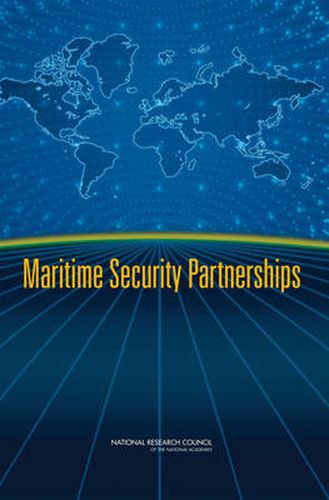Readings Newsletter
Become a Readings Member to make your shopping experience even easier.
Sign in or sign up for free!
You’re not far away from qualifying for FREE standard shipping within Australia
You’ve qualified for FREE standard shipping within Australia
The cart is loading…






To offer security in the maritime domain, governments around the world need the capabilities to directly confront common threats like piracy, drug-trafficking, and illegal immigration. No single navy or nation can do this alone. Recognizing this new international security landscape, the former Chief of Naval Operations called for a collaborative international approach to maritime security, initially branded the ‘1,000-ship Navy’. This concept envisions U.S. naval forces partnering with multinational, federal, state, local and private sector entities to ensure freedom of navigation, the flow of commerce, and the protection of ocean resources.This new book from the National Research Council examines the technical and operational implications of the ‘1,000-ship Navy’, as they apply to four levels of cooperative efforts: U.S. Navy, Coast Guard, and merchant shipping only; U.S. naval and maritime assets with others in treaty alliances or analogous arrangements; U.S. naval and maritime assets with ad hoc coalitions; and, U.S. naval and maritime assets with others than above who may now be friendly but could potentially be hostile, for special purposes such as deterrence of piracy or other criminal activity.
$9.00 standard shipping within Australia
FREE standard shipping within Australia for orders over $100.00
Express & International shipping calculated at checkout
To offer security in the maritime domain, governments around the world need the capabilities to directly confront common threats like piracy, drug-trafficking, and illegal immigration. No single navy or nation can do this alone. Recognizing this new international security landscape, the former Chief of Naval Operations called for a collaborative international approach to maritime security, initially branded the ‘1,000-ship Navy’. This concept envisions U.S. naval forces partnering with multinational, federal, state, local and private sector entities to ensure freedom of navigation, the flow of commerce, and the protection of ocean resources.This new book from the National Research Council examines the technical and operational implications of the ‘1,000-ship Navy’, as they apply to four levels of cooperative efforts: U.S. Navy, Coast Guard, and merchant shipping only; U.S. naval and maritime assets with others in treaty alliances or analogous arrangements; U.S. naval and maritime assets with ad hoc coalitions; and, U.S. naval and maritime assets with others than above who may now be friendly but could potentially be hostile, for special purposes such as deterrence of piracy or other criminal activity.